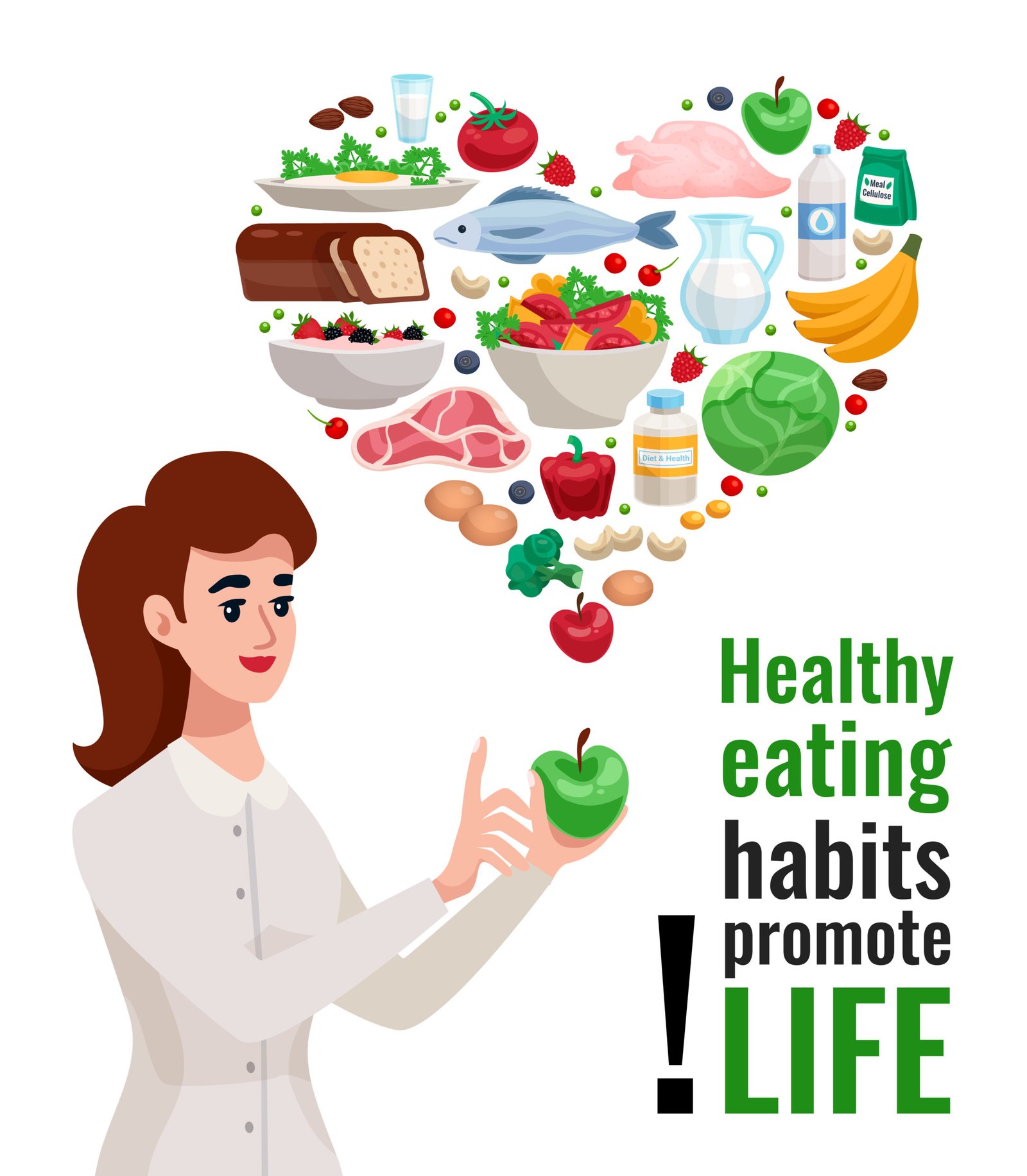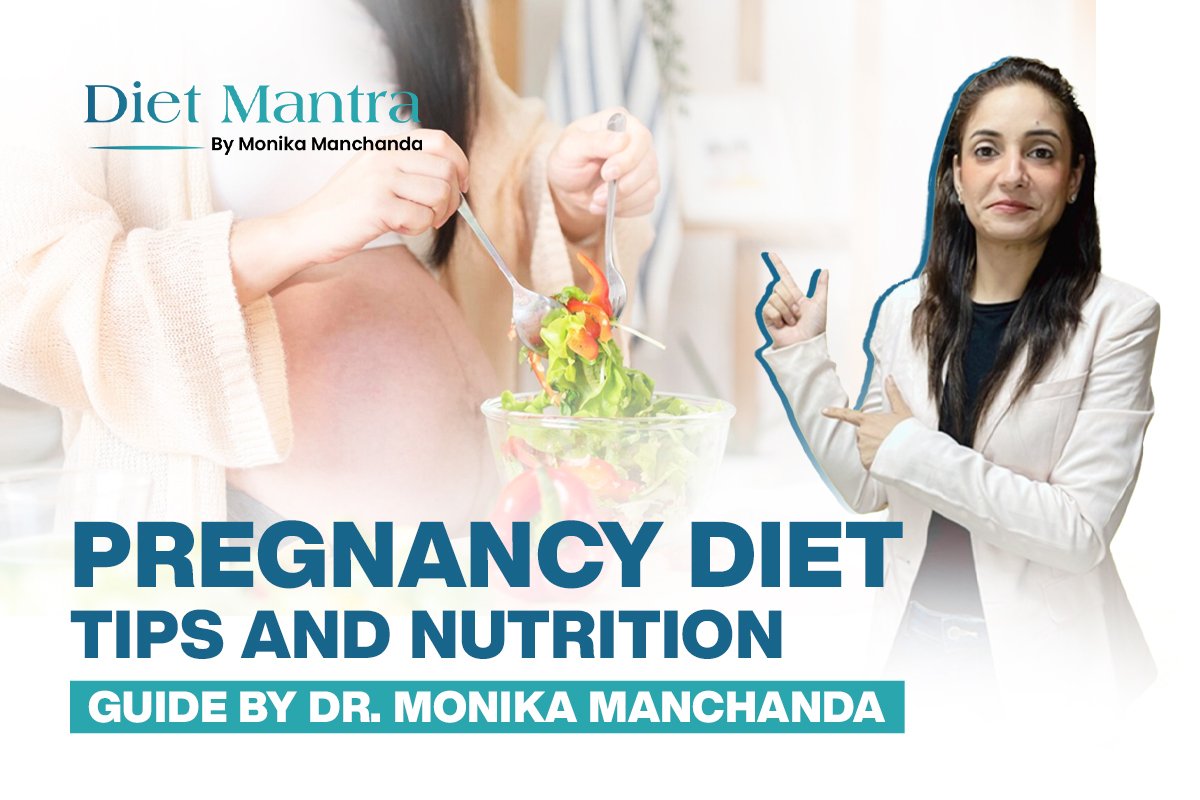They say, “You are what you eat,” to all the mothers-to-be because the nutrients you consume directly impact the health and development of the baby.
A balanced and nutritious diet is important for the body to ensure a healthy life for the baby inside the womb of the woman.
During pregnancy, foods high in protein, calcium, iron, and folic acid are particularly crucial. It’s about laying the groundwork for a healthy life for both mother and child, not simply about what’s on the plate.
Pregnancy is an extraordinary condition in a woman’s life; nutrition and diet become very critical for both the mother and the unborn baby. Therefore, nutritionist and wellness expert Dr. Monika Manchanda shares her thoughts on feeding your body in this exciting yet sometimes challenging phase of life. Following a pregnancy-friendly diet will ensure the mother’s health and proper development of the unborn child, irrespective of whether you are right at the beginning of your pregnancy or nearing your due date.
Focus on Nutrient-Rich Foods
Dr. Monika Manchanda clearly states that emphasis needs to be placed on nutrient-dense foods. The pregnancy period is one in which the body of the pregnant woman is under more need for vitamins and minerals to nourish herself and nurture the baby’s healthy development. Some of these key nutrients for healthy pregnancy diet tips include:
- Folic Acid: It is an important pregnancy diet and for the prevention of neural tube defects. This vitamin can be derived from leafy greens, lentils, beans, and fortified cereals.
- Iron: Important for pregnancy diet and in preventing anemia and increasing blood volume. Lean meats, spinach, beans, and fortified grains are good sources.
- Calcium: Another important thing to keep in mind in a pregnancy diet plan for bone health. It can be obtained from dairy products, fortified plant milks, leafy greens, and almonds.
- Vitamin D: Another imfacilitator for healthy pregnancy diet plan is calcium absorption. Get it from sunlight, fortified foods, or supplements if needed.
Consume meals at intervals
According to suggestions from Dr. Monika Manchanda, a pregnancy diet for nausea or a sensitive stomach is routine for most women, especially in the first trimester. In that respect, managing nausea and keeping energy levels up are better achieved by eating small meals distributed over the day rather than consuming three large meals. Healthy snack choices are nuts, fruits, or whole grains.
Drink plenty of water
Pregnancy diet requires extra hydration. Dr. Monika Manchanda insists on keeping hydrated throughout the day with water to prevent dehydration, which can lead to complications. Aim to drink 8-10 glasses a day, and coconut water or fresh fruit juices would be refreshing.
Contain processed and sugar-laden foods
Another thing to keep in mind for a healthy pregnancy diet is that eating sweets seems to be an easy indulgence. Dr. Monika confides that these processed foods and sugary snacks should be avoided in excess. These carry excess calories and contribute to the risk of developing gestational diabetes. Some examples of healthier alternatives are natural sugars, like fruits, or using a drizzle of honey from time to time.
Fats should include healthy ones
Healthy fats are important in the development of your baby’s brain and nervous system. Dr. Monika Manchanda highly recommends adding omega-3 fatty acids from walnuts, chia seeds, flaxseeds, and oily fish like salmon (if pregnancy-safe). These fats are vital for your baby’s brain development during pregnancy.
Lean Proteins Must Be Included
Proteins are important in tissue development, particularly in developing your baby’s organs during pregnancy. Dr. Monika Manchanda says that you should include lean sources of protein like chicken, turkey, tofu, legumes, and eggs. Protein-rich foods also help satisfy you, giving you energy throughout the day.
Foods to Stay Away From
Dr. Monika Manchanda says a pregnancy diet for women should include many things and they should be aware of certain foods that should be avoided for the sake of safety. These include:
- Raw or undercooked fish, seafood, eggs, and meat (as they carry the possibility of harboring bacteria and parasites).
- Unpasteurized dairy and juice.
Listen to Your Body
Cravings are determined by pregnancy, and Dr. Monika Manchanda says it is vital to honor these cravings and the needs of your body. Cravings for some foods could be the body’s way of signaling for help in a missing nutrient. For example, craving citrus fruits could be an indication of needing vitamin C, while craving milk might mean a need for calcium.

Take prenatal vitamins
Prenatal vitamins are definitely very useful and are a must, according to Dr. Monika, as they help bridge the gaps in a regular diet; these are usually rich in folic acid, iron, calcium, and DHA. If you want to start taking any supplements, approach your healthcare provider first.
Staying fit plus following your body's needs is essential
Exercise is great during pregnancy, but take it easy. Dr. Monika suggests light activities such as walking, yoga, or swimming. Exercise helps with the control of weight gain and alleviates stress while enhancing well-being along with healthy pregnancy diet.
Abstain from drinking any kind of alcohol
Through the effects of alcohol on your health and the health of your baby, experts and according to pregnancy diet also recommend complete abstinence from the consumption of any form of alcohol during pregnancy.
Limit your intake of caffeine
One of the substances that may elevate heart rate and blood pressure, both of which should be moderated during pregnancy, is caffeine. According to the American Pregnancy Association, caffeine is able to cross over via the placenta and affect the fetus. The developing metabolism of your fetus will not be able to handle the caffeine any better than that of the mother.
People also ask for:
Q1. Is it allowed to exercise during pregnancy?
Yes, light to moderate exercise is generally safe and good to do during pregnancy. Walking, swimming, and prenatal yoga can help increase energy levels, decrease stress, and improve general health. However, always discuss with your physician the appropriateness of exercise for your physical condition before continuing or beginning any exercise routine.
Q2. How can I manage pregnancy diet cravings healthily?
Deal with pregnancy diet cravings in healthy ways. Pregnancy cravings are common, but it is important to manage them with healthy alternatives. Go for fresh fruit or yogurt drizzled with honey if the craving is sweet. Roasted nuts or popcorn is a good alternative if you are craving something salty. Moderation is the key to ensuring that you do not overindulge in unhealthy foods.
Q3. Can I eat dairy while pregnant?
Yes, dairy can safely be consumed in pregnancy and is an important source of nutrients such as calcium and protein. Just be sure that all dairy is pasteurized to minimize the risk of foodborne illness. If you’re lactose intolerant, there are ever more lactose-free or plant-based options available, such as almond milk and soy yogurt.
Q4. What are the foods to avoid while pregnant?
Pregnancy diet comes with some food warnings, including:
- Raw or undercooked seafood, eggs, and meats—all possible sources of food sickness.
- Unpasteurized milk and juices—these might contain bacteria that can seriously harm.
- Fish high in mercury, such as swordfish, shark, and king mackerel.
- Pregnant women should steer clear of all caffeine and alcohol.
Q5. How can I manage morning sickness with my diet?
Eating becomes quite a task with morning sickness, especially during the initial days of pregnancy. It is recommended that you eat small, frequent amounts of food during the day. Ideal foods are bland ones such as crackers, toast, or rice. Drinking clear liquids will keep one hydrated. Ginger and peppermint are also known to relieve nausea.


Recent Comments